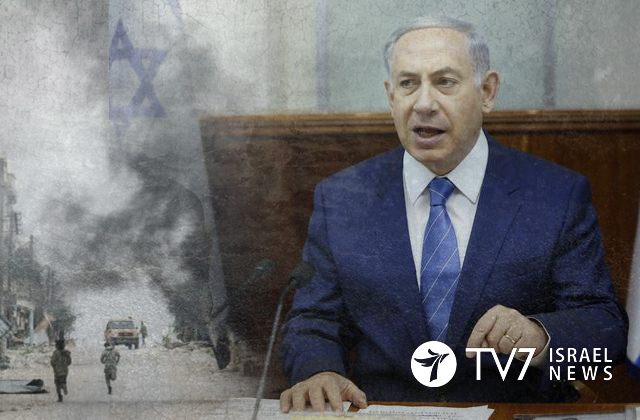Prime Minister Benjamin Netanyahu condemned a suspected chemical weapons attack against the rebel-held Syrian province of Idlib, in which at least 58 people were killed, including 11 children. “When I saw the images of babies suffocated from a chemical attack in Syria, I was shocked and outraged. There’s no, none, no excuse whatsoever for the deliberate attack on civilians and on children, especially with cruel and outlawed chemical weapons. I call on the international community to fulfil its obligation from 2013 to fully and finally remove these horrible weapons from Syria,” said Netanyahu.
The alleged use of chemical weapons in the rebel-held district, is just one in a series of similar reports during the course of the Syrian conflict, which entered last month into its seventh year. In August of 2012, then US President Barack Obama, threatened military action against Syrian President Bashar Assad if the regime would attempt to deploy or use chemical or biological weapons, defining its use as a “red line” for the United States. Nevertheless, the former American President backed down from taking military action in Syria after Moscow assured Washington that it would oversee a destruction process of the chemical and biological weapons in the possession of the Syrian government, based on UN Security Council resolution 2118, a move that received full compliance from Assad’s regime.
Some two years after the initial threat of military action, on August of 2014, all of the most toxic chemicals that have been declared by the Syrian government had been destroyed offshore. Nevertheless, Western officials expressed concerns, at the time, about the completeness of Syria’s disclosures, believing that the Assad regime would continue to use chlorine, which is a common industrial chemical, that was not part of the disarmament agreement.
Even though Western countries, including Washington, laid the blame on Syrian government forces, Damascus strongly denied the allegations, stressing that the Syrian military did not use any such weapons. Russia backed the position of the Syrian government, laying the blame on rebel forces operating in that area, including the Al-Qaeda linked Jabhat Fattah al Sham, which Moscow said had its “own chemical arsenal.”
“Yesterday from 11:30 am to 12:30 p.m. local time (0830-0930GMT), Syrian aviation made a strike on a large terrorist ammunition depot and a concentration of military hardware in the eastern outskirts of Khan Sheikhoun town. On the territory of the depot there were workshops which produced chemical warfare munitions.” / “These chemical munitions were also used by the militants in Syrian Aleppo when their use was spotted by the Russian military specialists in the end of last year. The poisoning symptoms of the victims in Khan Sheikhoun shown on videos in social networks are the same as they were in autumn of the previous year in Aleppo,” said Igor Konashenkov, Russian Defense Ministry spokesman.
An emergency meeting the of UN Security Council was held today on the matter of the Idlib attack, during which a heated debate ensued between the ambassadors of the United States and Moscow. Ambassador Nikki Haley reiterated previous allegations levelled by the White House against the Assad Regime and Russia, while the Russian Ambassador Pyotr Ilichov reiterated Moscow’s position in which the Syrian air strike targeted a rebels’ weapons-cache that stored chemical weapons.
UN envoy for Syria, Staffan De Mistura, demanded accountability for the chemical attack and called for an inquiry by watchdogs such as the Organization for the Prohibition of Chemical Weapons. “What we have understood (is that) it was a chemical attack and it came from the air. We have been and we will be stimulating all those who have the capacity of finding out technically what happened — OPCW (Organisation for the Prohibition of Chemical Weapons) is an obvious for instance candidate for doing so, in order to be able to be much more precise. What we do know is that it was a horror,” said de Mistura.
